Computer Olympiad 2011
The "Clobber" Competition
The ICGA Computer Olympiad 2011 took place in the nice
city of Tilburg (NL), organized by Prof. Hans Jaap van den Herik,
Mrs. Johanna Hellemons and their creative group.
For the first time also two bots of Jena University participated,
one in EinStein würfelt nicht, the other one in
Clobber.
Clobber is a game of the 21st century, invented in 2001 by
M. Albert, J.P. Grossman, and R. Nowakowski, in the context
of Combinatorial Game Theory. Clobber for humans was originally
proposed with 6x5-board. Later, when bots showed up
and were immediately dominant on 6x5, also larger board sizes
became attractive for competitive play. Already in 2005 and 2006, Clobber
was part of the Computer Olympiads. In 2011, there were two contenders
again: Title defender Pan by Johan de Koning, and newcomer
McJena by Jörg Sameith and Ingo Althöfer.
Observe that name "Pan" is not meant with respect to the Greek god,
playing his flute romantically. Instead, it is the dutch term for "frypan",
threatening that the bot might use such a piece to hit the opponent
again and again. (Pronounce it with a short "a", like in "pun".)
Name "McJena" is slightly more peaceful, being the short form
of "Monte Carlo Jena". McJena is based on a pure
Monte Carlo search.
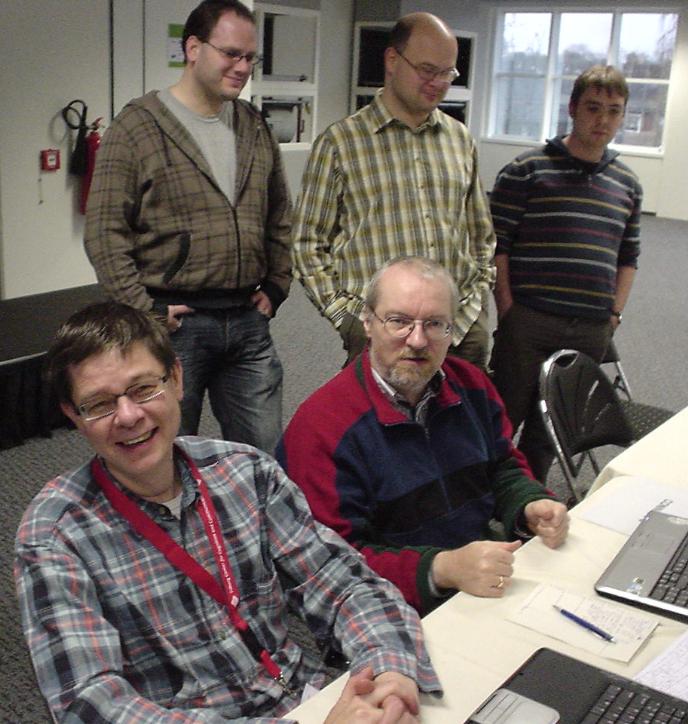
The atmosphere between the programmers and operators was very warm and
friendly. The picture shows Johan de Koning (left) and
Ingo Althöfer (right) sitting at their machines.
Three speactators are eagerly following the first moves, amongst
them chess programmer Johannes Zwanzger to the very right.
Altogether six games were played: two on 6x5, two on 8x8, and two on 10x10.
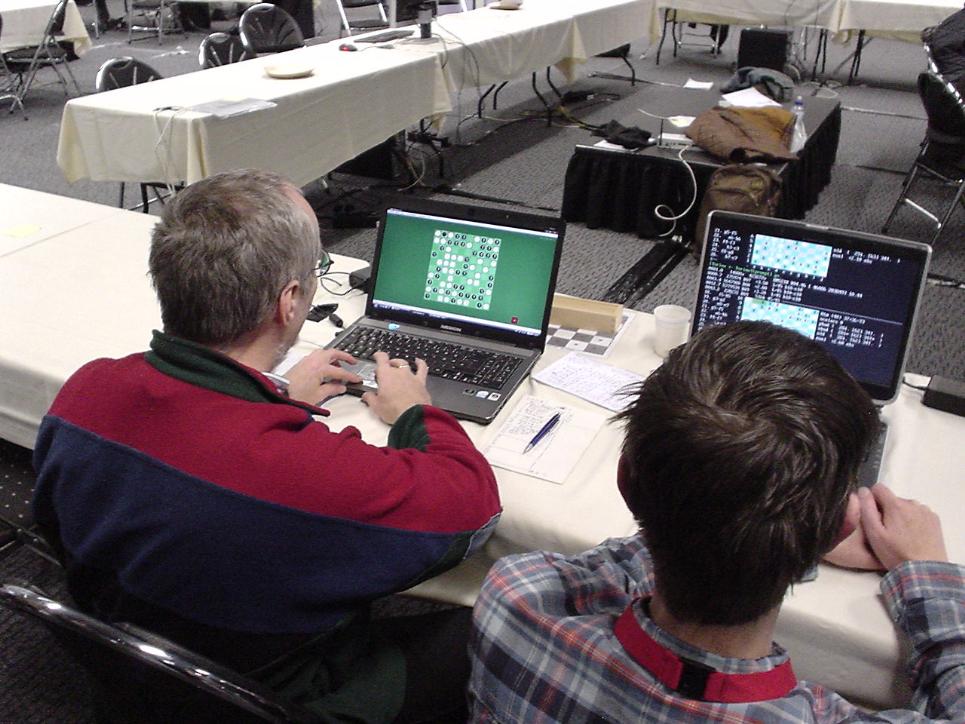
A view from the perspective of the spectators.
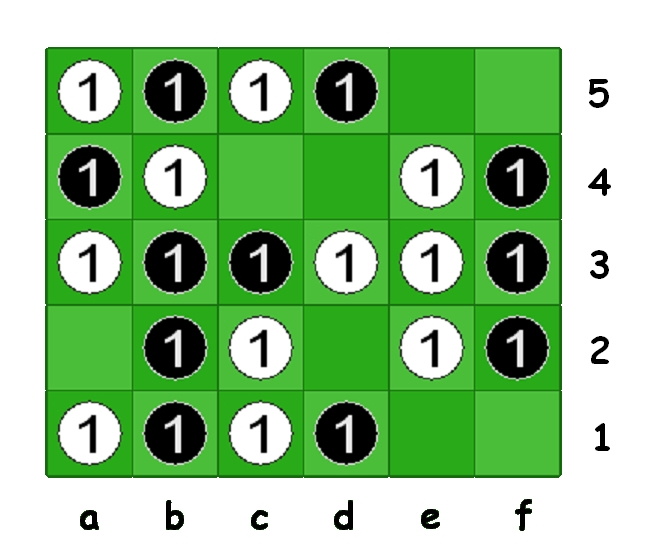
A position from the very first game - and the last one of the whole
match where McJena was proved to have a winning position. McJena
was White and had 18 feasible moves here. Five of them keep the
winning advantage (a5xa4 or a5xb5 or b4xb3 or e2xf2 or e4xf4),
but McJena selected one of the others (c2xc3), demonstrating a
lack of competence.
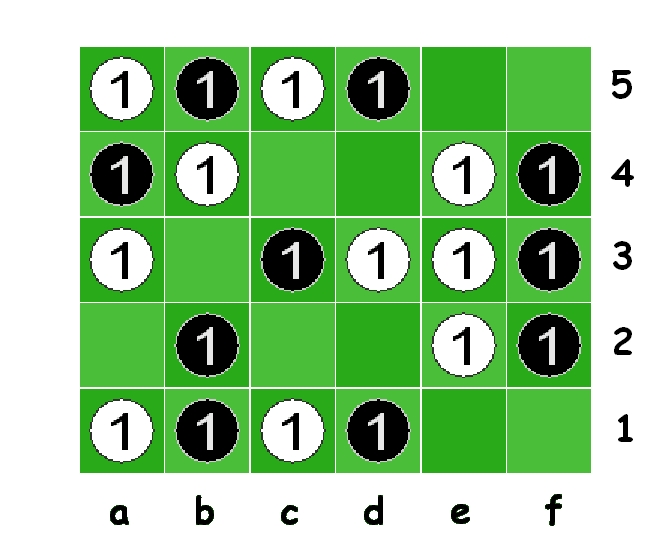
Observe that after Pan's winning move (b3xc3) there remain three
unconnected groups on the board.
Combinatorial Game Theory may be used to find a simple evaluation of this
situation.
After this loss McJena did not see the sun again. Under Pan's pan
the score climbed from 0-1 via 0-2, 0-3, 0-4, and 0-5 to a final 0-6 washout.

Pan has just computed his first move in the second 6x5-game. Behind the monitor,
Ulf Lorenz is drinking coffee. To the left programmer
Tristan Cazenave can be seen.
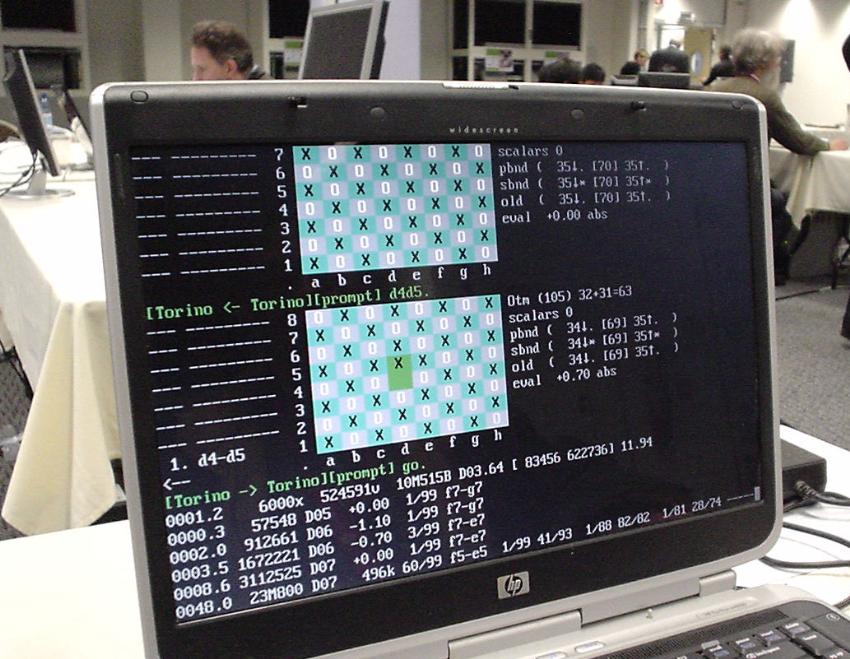
Pan's first move in game 4, on 8x8-board. Observe the neutral
0.00-score in the evaluation. On today's level, the first bot
moves on large Clobber-board are like walking in the fog.
In the right background hair and beard
of Shogi programmer Harm Geert Muller can be seen.
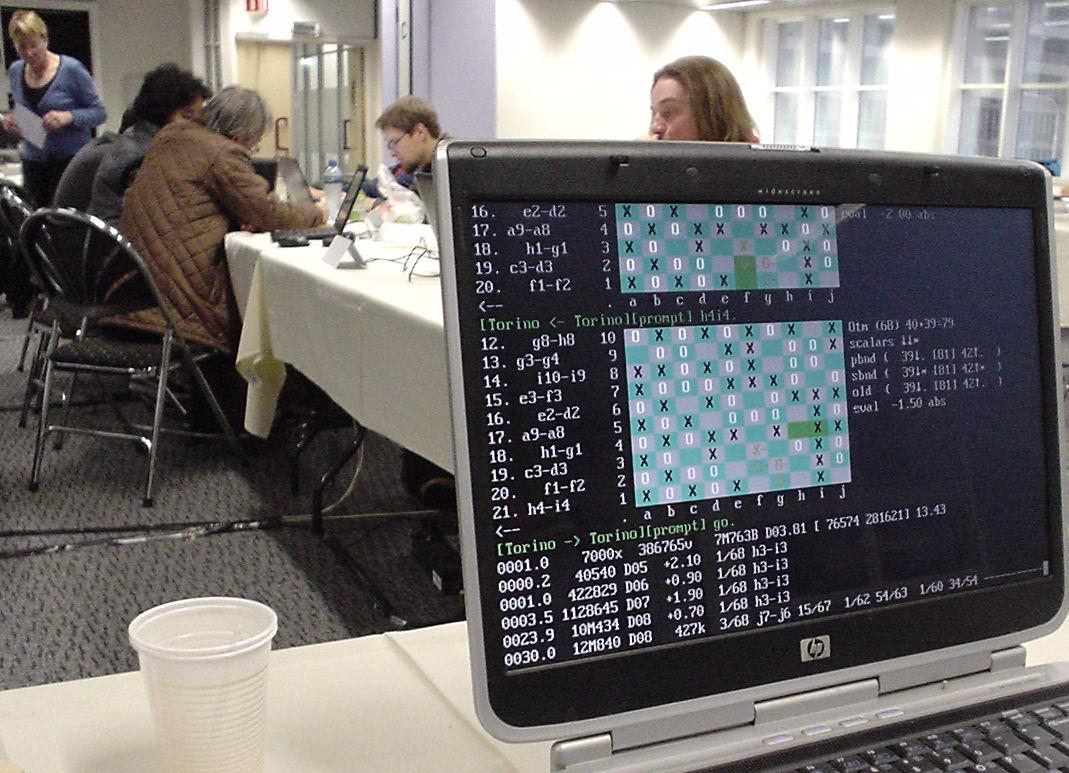
Pan feels already somewhat ahead after move 21 in the final game, on
10x10 board. In the background from left to right: Johanna "Joke"
Hellemons, some concentrated go programmers, and (behind the monitor)
Erik van der Werf who had a very successful Olympiad with his
go bot Steenvreter. Steenvreter collected silver medals on
13x13- and 19x19-go-boards against very strong opposition. It was topped
only by Zen.
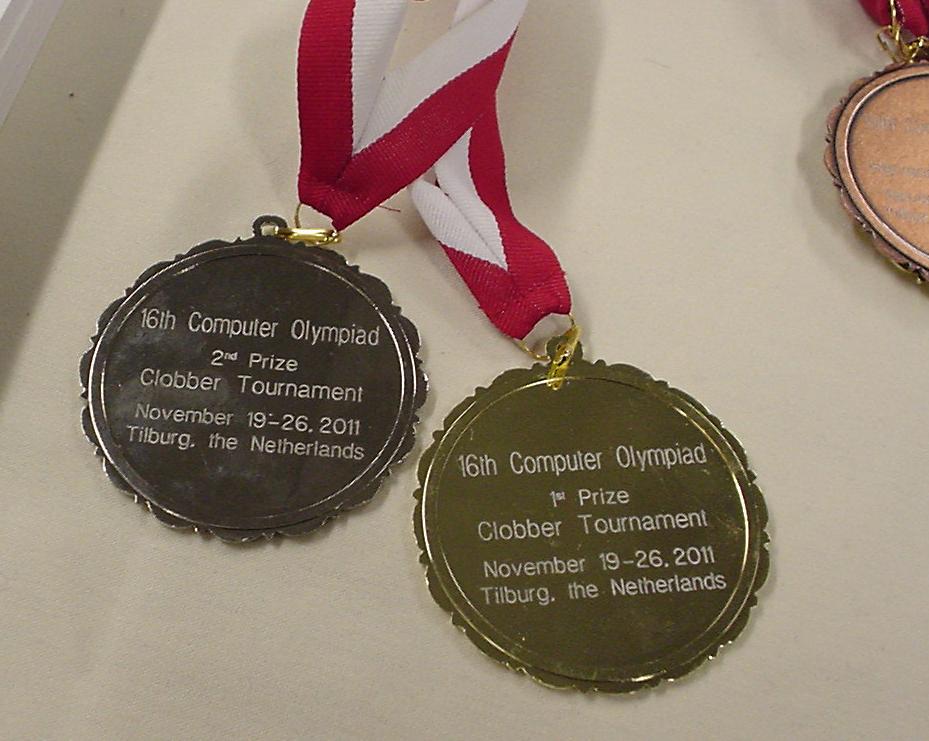
The medals for Clobber - and in the upper right corner a
glimpse on a bronze medal from another competition.
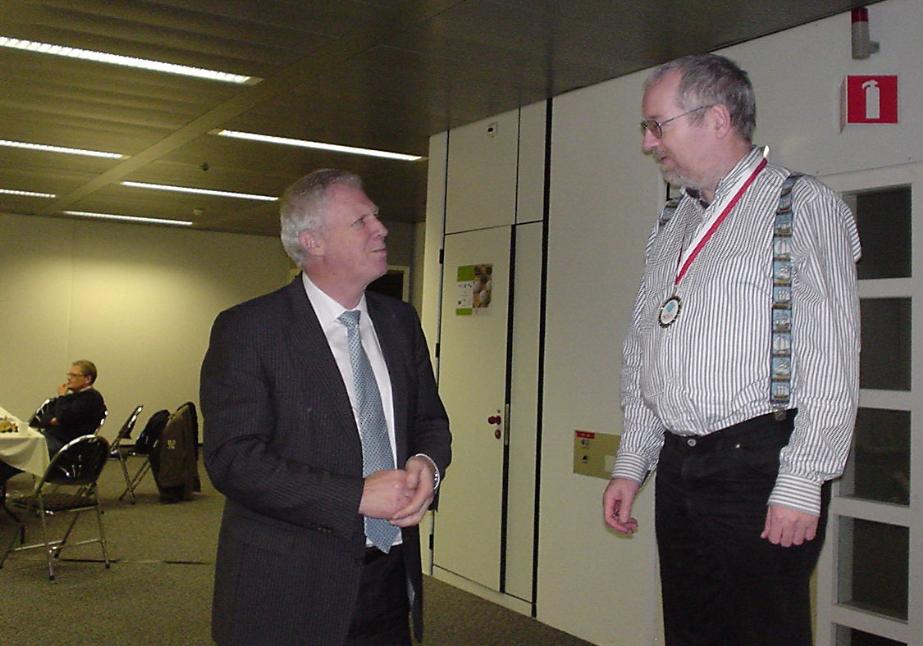
Tournament Director Jaap van den Herik who just gave
the silver medal to Ingo Althöfer. Stefan Meyer-Kahlen
in the background to the left is not following the ceremony.
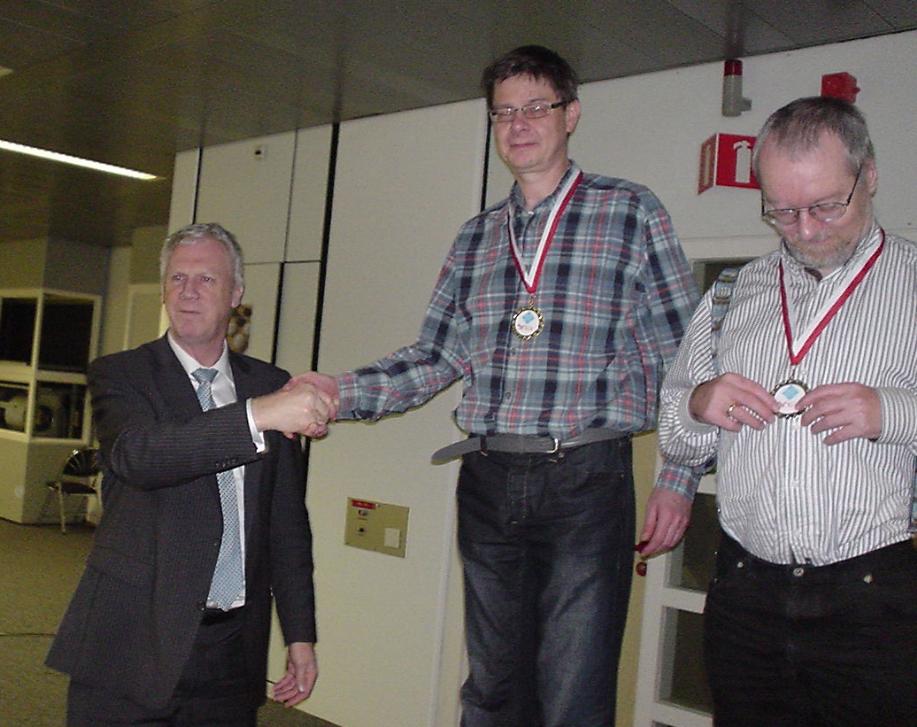
Johan de Koning got the very deserved gold medal for Pan's
convincing performance. So far, Pan never lost a single tournament game
in Clobber.
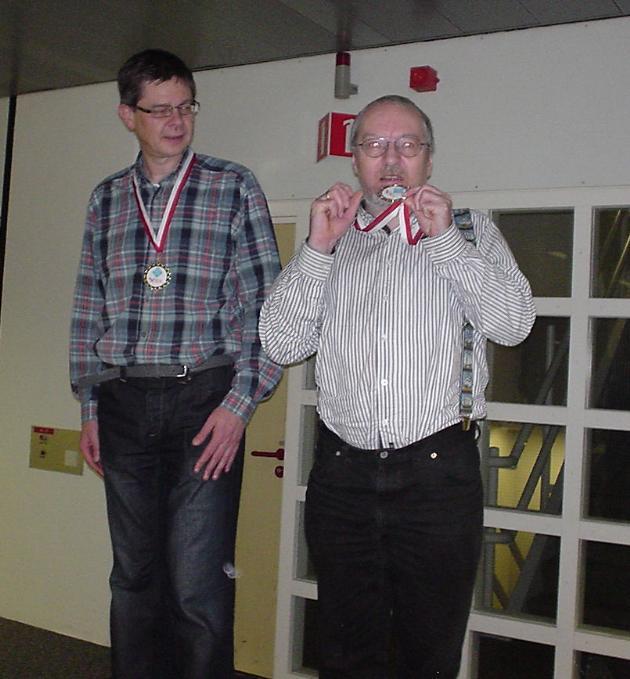
One of the operators is biting into "his" medal.
He had seen such behaviour in similar ceremonies in the sports olympiads.
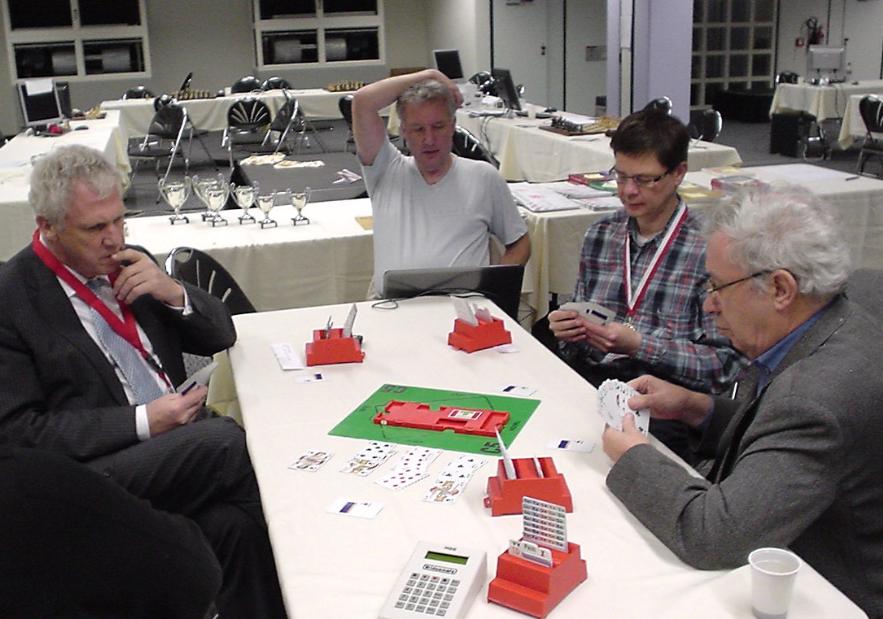
In the evening of the "Clobber Day", there was an exhibition
event in Bridge, with many human teams from the local club,
and one computer team, based on program Jack by
Hans Kuijff. Johan de Koning had no other obligations
in these hours. So he became one of the "operators" for the
Jack team. In the picture you can see programmer Hans Kuijff
with the laptop in the middle. Left is Jaap van den Herik,
right David Levy, who formed one of the human teams.
Back to the main site of Ingo Althöfer











